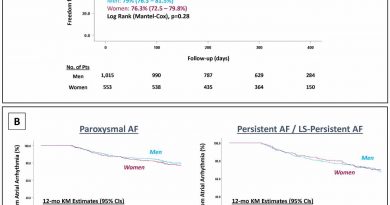Is Ginger Ale Really the Magical Stomach Ache Cure?
You’ve definitely heard it before: Take small sips of ginger ale to try and calm an upset stomach when you’re not feeling well or dealing with morning sickness. We’ve all been there with the dreaded stomach bug. Nausea, vomiting—you’re looking for anything to relieve the misery. And while it’s hard to keep anything down, many people keep a stock of ginger ale in their fridge in these desperate times as a folk remedy that we all kind of just agree on, courtesy of our mothers and their mothers before them.
While it’s popular because ginger, as an ingredient, has properties that help with nausea, does it really work?
“According to the Natural Medicines Database, ginger does help with nausea from chemotherapy, morning sickness, postoperative, and motion sickness for some, but in amounts such as 0.5 to 2.5 grams,” says Melissa Majumdar, MS, RD, registered dietitian and spokesperson for the Academy of Nutrition and Dietetics. “Ginger’s active ingredient impacting nausea and vomiting is unclear, but is likely related to the gingerols and shogaols components that can inhibit neurokinin-1, serotonin and dopamine receptors, likely impacting nausea.”
But unfortunately, what your momma probably didn’t tell you is that your ginger ale probably doesn’t actually contain the real stuff. (We know!)
“Ginger ale has little to no ginger based on the ingredients; ginger may be included in the ‘natural flavors’ listed on the label, but natural flavors and ingredients are listed in descending order, meaning there is far more water and high fructose corn syrup than ginger in ginger ale,” says Majumdar. In fact, one ginger ale manufacturer, Canada Dry, was fairly recently sued for not containing any ginger, yet being packaged and labeled with the words “Made from Real Ginger.”
So how can you take advantage of ginger’s nausea benefits in other forms? “Ginger comes in powdered varieties and may be the easiest to measure, but fresh ginger can be enjoyed by grating it into food or steeping in a tea,” says Majumdar.
But at the end of the day, if ginger ale does work for you, it’s okay to stick with it. (Plus, it tastes really good.)
“The most important factor in dealing with an active stomach bug would be hydration,” says Majumdar. “In that case, whatever sounds appetizing and is fluid is a good remedy, as dehydration can further cause nausea and vomiting and should be avoided.” Bottom line: If you have a tried and true strategy that makes you feel better when sick, you should continue with it. If you haven’t noticed any improvement with ginger ale but like the taste of ginger, switch to ginger powder or fresh ginger for more relief.
A version of this story was published March 2019.





Source: Read Full Article



